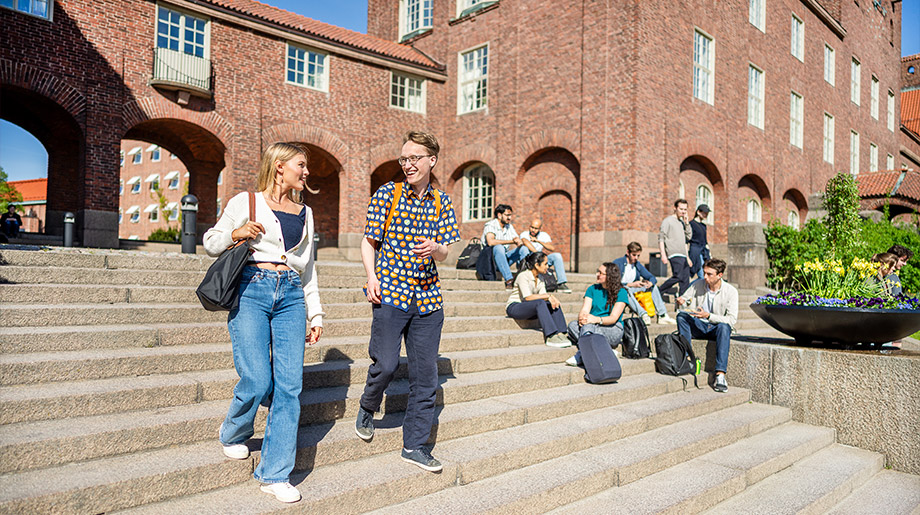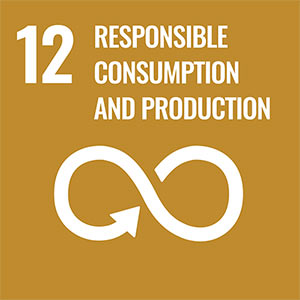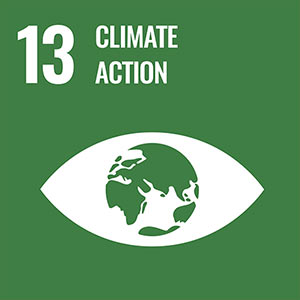MSc Sustainable Technology
The master's programme in Sustainable Technology covers the concept of Industrial Ecology, focusing on the interaction of technical, economic, social and ecological systems and processes. Students will explore this interdisciplinary framework for designing and operating industrial systems interdependent of natural systems. Graduates will balance environmental and economic performance and lead the development of strategies for a sustainable future.

Sustainable Technology at KTH - Principles and Applications of Industrial Ecology
The courses in the programme cover a range of interdisciplinary subjects connected to industrial ecology, introducing you to tools and knowledge that enable you to apply technology more sustainably. The first semester consists of mandatory courses. They will give you an insight into the concepts of industrial ecology, ecosystems and the impact of socio-technical systems, system analysis tools used in decision-making and a good base for scientific work.
During your third and fourth semester, you can choose to specialise in, for example, more technology-oriented or management-oriented courses or mix courses from different areas to acquire broad knowledge in industrial ecology.
After completing all course work, you carry out a six-month-long degree project for the final semester. The project is carried out either in an academic environment (university, research institute, or equivalent) or in a public or industrial setting (municipality, city, power plant, consulting agency or other industry/business). While suitable degree project topics may be proposed and assigned by programme lecturers or specialists from related industries and companies, you are encouraged to define projects on your own and seek environments in which these can successfully be carried out.
The pedagogical concept applied in the learning process is to work with projects, best practices and case studies; consequently, considerable effort is put into training students in discussion, critical analysis and written and oral presentations. It is also a high priority to link courses and projects to practical experience through cooperation with companies, institutions and public authorities.
This is a two-year programme (120 ECTS credits) given in English. Graduates are awarded the degree of Master of Science. The programme is given mainly at KTH Campus in Stockholm by the School of Architecture and Built Environment (at KTH).
Courses in the programme
The courses in the programme cover topics such as industrial ecology, system analysis and perspectives, cleaner production, circular economy, ecosystem performance, ecological economics, environmental management and transition theory.
Courses in the master's programme in Sustainable Technology
Future and career
Students graduating from the master’s programme in Sustainable Technology have comprehensive knowledge and skills adapted to work with sustainable development, both in the private and public sectors. Having interdisciplinary experience and the ability to address complex problems by adopting a systems view and critical thinking makes the student a valuable employee in many industries and organisations.
Our graduates obtain positions as environmental consultants, advisors to local or regional authorities in planning and implementation processes or officers in government agencies, but also as environmental managers and advisors in public and private companies. Given the growing awareness of the need to build more long-term sustainable societies, graduates from the programme will have the skills to become key players in developing strategies for a sustainable future. Graduates from the programme work at all types of companies and organisations, for example, Climate technology centre, Ragn Sells (waste management), Consultant companies such as WSP and SWECO, energy-related companies like E.ON, with research in companies and organisations like IVL Swedish environmental institute and municipalities. Many graduates go on to doctoral studies at KTH and elsewhere, mainly in their home countries.
Sustainable development
Graduates from KTH have the knowledge and tools for moving society in a more sustainable direction, as sustainable development is an integral part of all programmes. Sustainable development is at the core of the master's programme in Sustainable Technology since Industrial ecology is about steering today’s industry and society towards greater sustainability and resource efficiency. Several courses include system changes for achieving more sustainable production and consumption. Accordingly, all the sustainable development goals are of interest in the programme. The three sustainable development goals most apparent in the programme are:



Depending on your chosen elective courses, you can acquire specific tools and skills to create a sustainable future, such as system analytical tools, scenario methodologies such as back-casting, management systems in companies and environmental modelling. This will make you a strong candidate for working in companies (in their sustainability offices), organisations such as the UN, Climate technology centres and various consultant companies dealing with environmental and sustainable projects.
Faculty and research
The master's programme in Sustainable Technology is situated at SEED (the Department of Sustainable Development, Environmental Science and Engineering) at the School of Architecture and the built environment at KTH. The department performs research in several areas connected to sustainability, for example, Industrial Ecology, Environmental Engineering, Environmental Modelling, Sustainability Assessment and Management, Water and Waste Management. For more information about research projects and professors connected to the research areas, please visit “ Research at SEED ”.



